Can Never Be Happy Again After Drug Overdose
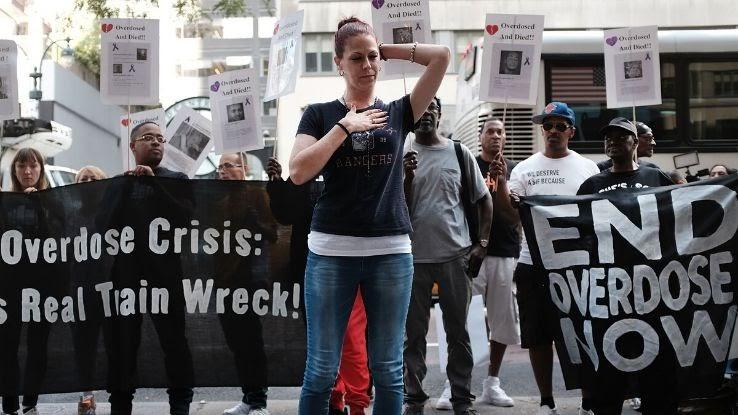
The following article deals with opioid addiction, suicide and mental health issues, which may crusade strong feelings in some readers. If yous're in need of assist or advice regarding one of these bug, call the National Suicide Prevention Lifeline at 1-800-273-8255. You can also contact the Crisis Text Line by texting 741741.
While the COVID-nineteen outbreak poses a serious challenge to healthcare systems effectually the globe, one other pandemic hasn't gone away: the opioid crisis. COVID-nineteen has put stress on healthcare systems and the economy akin, and the result is a perfect storm of harmful conditions for those dealing with drug addiction.
What Experts Are Seeing
While social distancing can help deadening the spread of COVID-19, the disability to run across friends and family has a direct affect on mental health. The loneliness and isolation stemming from pandemic lockdown orders are potentially life-threatening for people working to overcome habit. "We have to confront the reality," says Dr. Nora Volkow, director of the National Institute on Drug Abuse, "that…isolation is especially hard for people suffering from substance use disorders, depression or other psychiatric disorders." And there appears to be a correlation between the pandemic and overdoses: Co-ordinate to data from the Centers for Affliction Control and Prevention, more 76,000 people died of drug overdoses between Apr 2019 and April 2020 — an increase of nearly x,000 compared to the period lasting April 2018 to Apr 2019.
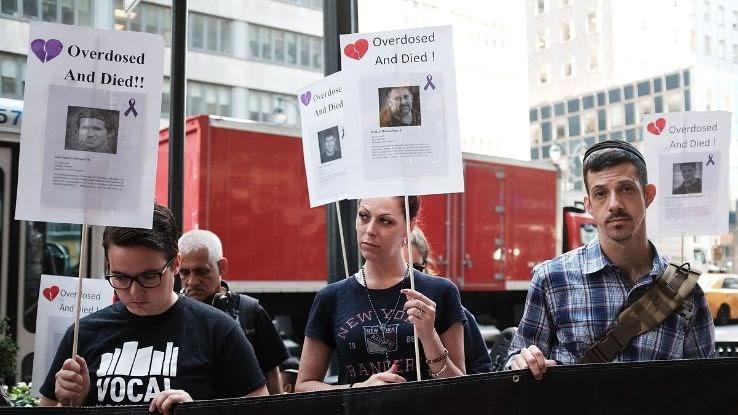
Another problem stemming from social isolation is that it makes it more hard to identify and help those at risk of an overdose. Before the pandemic, people experiencing an overdose were more probable to be institute by others and given emergency treatment. With near people at present staying in their ain homes, that'southward no longer the case.
Overwhelmed Wellness Care Systems Can Make Issues Worse
Since the pandemic began, people accept been reluctant to run the risk of visiting a hospital, and those with substance use disorders are no dissimilar. Some people may decide that it'due south better to deal with addiction solitary than to chance catching or spreading a potentially lethal disease, and they afterwards decide to stay home. In other cases, unemployment caused by the pandemic (which is yet some other factor that tin contribute to social isolation) ways they tin't afford necessary medical help with addiction even if they want information technology.
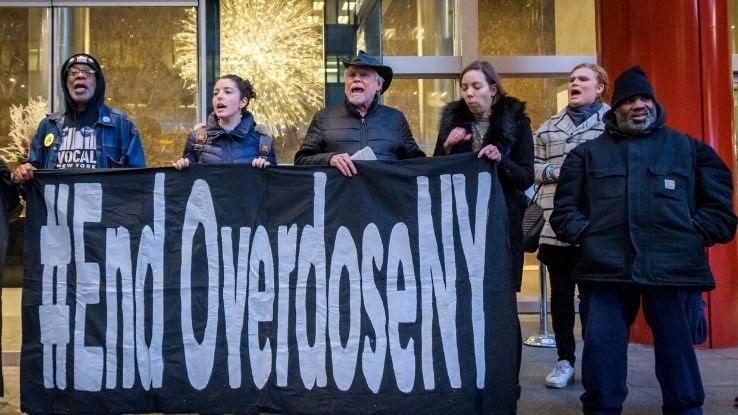
When at-risk people do seek out help, however, they can't always admission the same range and quality of care that they were getting before the pandemic. That'southward because hospitals and medical centers in many areas are overcrowded and overworked. Some handling centers and recovery programs take been forced to scale dorsum services or even shut downward, which affects non only people who are currently addicted, merely as well those in recovery who rely on such services to stay salubrious. With fewer and more than distracted medical staff available, suicidal ideation and other mental health issues are more than likely to go undiagnosed or untreated.
Disruptions to the Drug Trade
Another unexpected side event of the pandemic is that information technology disrupted the production and movement of drugs, both legal and otherwise. The shuttering of clinics and medical offices tin can make it difficult to obtain substances like methadone, buprenorphine and naltrexone that are used to treat opioid addiction.
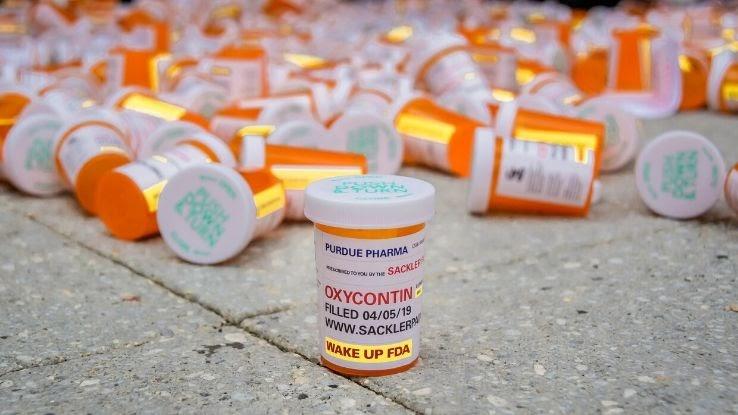
However, it'due south the absence of illegal drugs that's the biggest problem. Closed borders mean that many of the drugs that people with substance utilize disorders used are no longer available. To satisfy their compulsion, they may plow to other substances of all kinds. According to the Association of American Medical Colleges, urine drug tests performed by one national laboratory service saw a 32% increase for the use of nonprescribed fentanyl, a 20% increment for methamphetamine and a ten% increase for cocaine — and that's just from mid-March through May. The employ of increasingly unsafe substances has as well made drug overdoses significantly more probable to lead directly to death rather than hospitalization.
The Federal Government May Be the Best Solution
Even with the pressures of the pandemic, helping curb habit is notwithstanding possible. I part of the way to movement forwards is to go along creating social back up systems for people with substance utilize disorders. While they may tend to be less trusting of others due to the stigma of drug use, social groups — even remote ones — can make a real difference in recovery rates. Similarly, teletherapy tin help people access the services they need even during a pandemic.
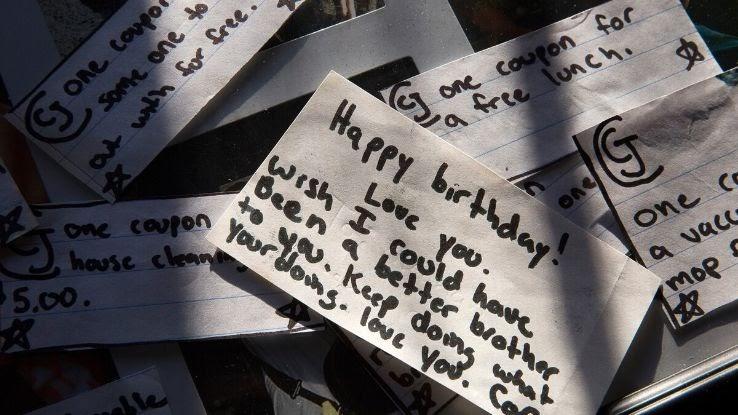
Numerous organizations are already working to provide such care. However, without state and federal funding, these programs tin exist difficult to sustain, every bit tin can other services that normally back up at-chance people. With individual states particularly strapped for greenbacks, the best hope for taming the opioid crisis both during the pandemic and more more often than not could be the federal regime.
One federal policy that has already made a departure is the Substance Abuse and Mental Health Services Administration'south (SAMSHA) choice to allow patients to fill medication prescriptions for up to 28 days if they're stable or 14 if they're less stable but however safe plenty to manage medications. Doing so allows people with substance utilize disorders to receive the drugs they need without exposing themselves to COVID-19 more than they already are. More work needs to exist done, both to combat COVID-19 and opioid addiction, but such policies are a commencement.
Source: https://www.reference.com/science/coronavirus-crisis-increasing-overdoses?utm_content=params%3Ao%3D740005%26ad%3DdirN%26qo%3DserpIndex
0 Response to "Can Never Be Happy Again After Drug Overdose"
Post a Comment